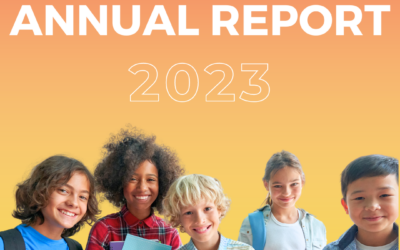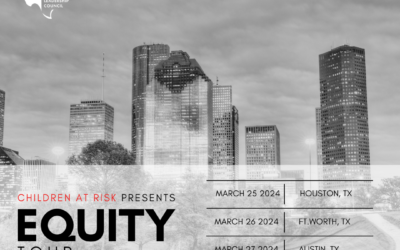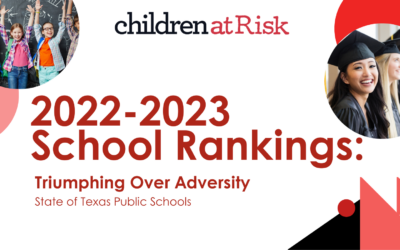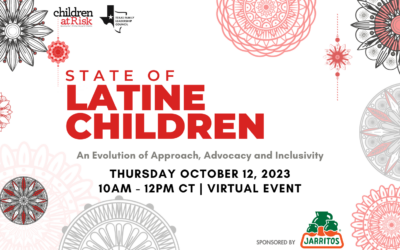
Education leaders come together to explore the root causes and potential solutions to school segregation in the 21st century.
On August 18th, CHILDREN AT RISK hosted “The Resegregation of American Schools: The Economics of Inequity,” a discussion between education leaders and advocates about the need to create a more inclusive school environment for diverse student populations. Presented in partnership with Shell Oil Company, Texas Family Leadership Council, Families Empowered, and RGV Focus, experts examined and addressed the root cause of the inequalities in our education system, to ensure a robust and thriving economic future for Texas.
Dr. Frazier Wilson, Vice President, Shell Oil Company Foundation welcomed attendees, and Donald Bowers, Vice President Federal Reserve Bank (Houston Branch) and CHILDREN AT RISK Board Member, opened the event with personal reflections on his experience as the only Black student in his elementary class.
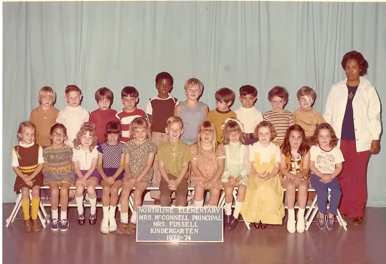
Vice President of the Federal Reserve Bank, Houston Branch, and CHILDREN AT RISK Board Member, Donald Bowers, shares his Kindergarten class photo.
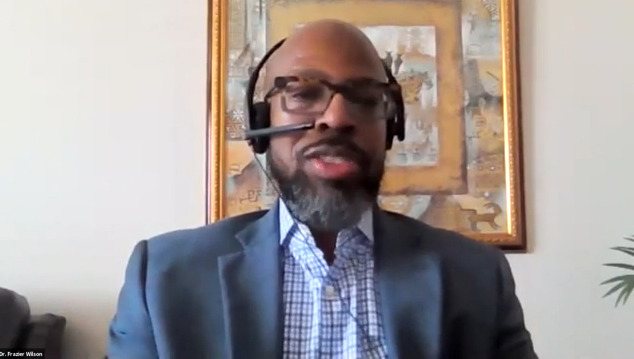
Dr. Frazier Wilson, Vice President of Sheil Oil Company Foundation makes opening remarks.
“As a child entering kindergarten in 1973, my parents, especially my mother, made it a priority to put me and my brother in the best schools possible… And so, for me, that meant a series of transitions from kindergarten through sixth grade where I ultimately attended five different schools before finding stability in middle school,” Bowers reflected.
“What happens to children who don’t have Shirley Bowers as their mother, who has the capacity to do the research and take the necessary measures to put their children in the best schools possible?”
Robert K. Nelson, Director, Digital Scholarship Lab, University of Richmond laid the framework for the day’s robust discussion with a historical breakdown of discriminatory practices in the drawing and development of neighborhoods and the schools that serve them. Additionally, Meshea L. Poore, Esq., Vice President & Chief Diversity Officer, West Virginia University, and President, Big XII Association of Chief Diversity Officers in Higher Education, wrapped up a series of presentations on virtual education and school choice by pointing out that “rather than choosing to see no color, educators must focus first on seeing people.”
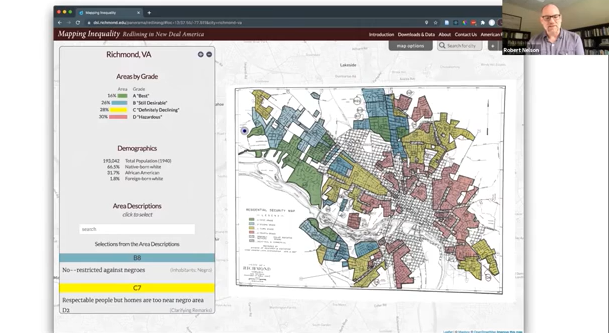
Professor Robert Nelson, Director, Digital Scholarship Lab at the University of Richmond presents his research.
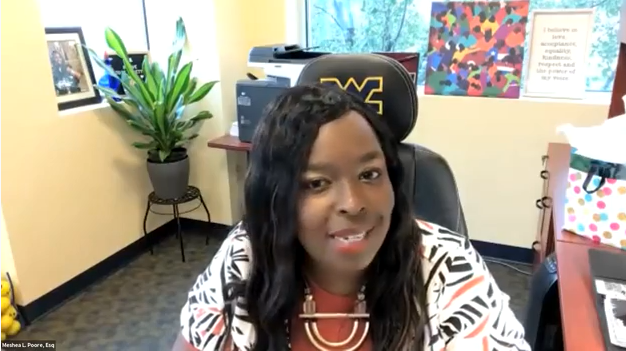
Meshea Poore, Esq., Vice President & Chief Diversity Officer at West Virginia University speaks on how early inequities affect the college pipeline.
CHILDREN AT RISK Texas Racial Equity Collaborative Director, Sharon Watkins Jones led a panel of educators and child advocates in a discussion of the need for culturally responsive teaching and learning. The panel included retired teacher Victoria Finger Franklin, who advised new educators to use their “heads and hearts” to ensure all children feel “included and appreciated” in the classroom. Beverly Cross, Holder of the Chair Excellence, College of Education, University of Memphis defined culturally responsive teaching as seeing, understanding, and meeting the needs of the whole child.
Randy Bowman, CEO of At Last Boarding shared the efforts of a Dallas program to provide economically disadvantaged children the opportunity to receive “resources that can propel them to success,” such as safe and adequate housing, nutrition and educational support, including technology, for the hours outside the classroom.
Sharmily Roy, Director, Center for Social Measurement & Evaluation, CHILDREN AT RISK presented data regarding the impact of racial segregation in schools, and Isabel Lopez, Executive Director, NestQuest demonstrated how families can use the data to make decisions in the best interest of their children.

CHILDREN AT RISK’s Sharon Watkins Jones moderates educator panel.
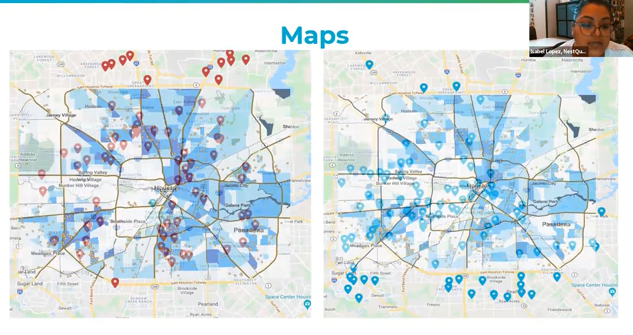
NestQuest Executive Director, Isabel Lopez shares Houston school data and explores options for parents.
Finally, Helen Stagg, CEO, Change Happens! and Derrell Bradford, President, 50CAN highlighted community solutions to improving student outcomes.
“I was born in the era of civil rights… [and] I remember even the face of the professor, I can see him now even fifty years later, of being looked at indifferently like I didn’t matter like my ideas or opinions were less than. If I didn’t have that protective layer that came from my community, I don’t know how I would have responded to that,” reflected Stagg.
“It’s good to be heard, but it’s insufficient… You can go to a school board and give them a piece of your mind, and it sort of ends there unless you are prepared to do other things like offering a policy alternative. Angst alone is not enough unless you’re prepared to run for school board or unless you are willing to advocate [through many different channels when you experience roadblocks].”
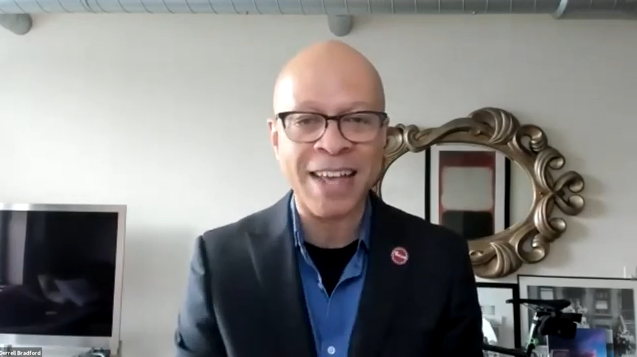
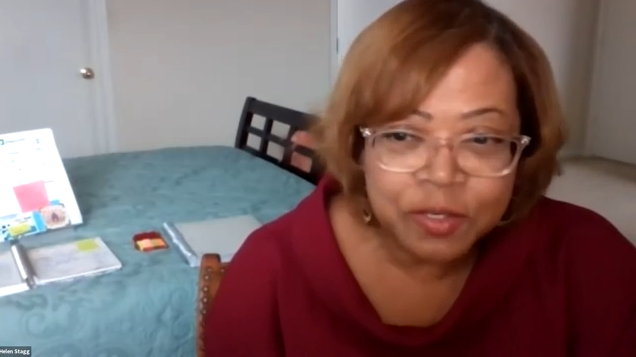
Derrell Bradford, President of 50CAN, and Helen Stagg, CEO of Change Happens!, discuss the need for community-driven solutions.
“If there’s one thing that the pandemic has taught us, it’s that there is an oceans-worth of will, desire, and ingenuity [in local communities] to help solve both their own problems, and very specifically, problems of education,” said Bradford.
Thank you to the many community partners, speakers, and attendees who helped make this year’s education summit a success! CHILDREN AT RISK looks forward to leveraging the research, best practices, and insights shared to drive our future advocacy efforts. If you missed the summit, a complete recording of the program is available below.
MORE LIKE THIS
2023 Annual Report
It is with immense pride and joy that we announce the start of a significant milestone: the 35th Anniversary of CHILDREN AT RISK. For over three decades, our organization has been at the forefront of advocating for the well-being and rights of...
2024 Equity Tour
The Texas Equity Tour, slated for March and April 2024, is a pivotal event organized by CHILDREN AT RISK (C@R) to address systemic racism and its impact on Texas children and families. Rooted in the principles of racial equity, the tour serves as a...
2022-2023 CHILDREN AT RISK’s Annual School Rankings
For the past nineteen years, CHILDREN AT RISK (C@R) has ranked and graded Texas public schools to help parents, educators, and community members better understand how their local schools are performing. By providing this information to parents and...
2024 C@R Learning Events
Learning Eventsconvening for change CHILDREN AT RISK is committed to hosting free events that engage the public and help them drive change for children. We aim to share research, unpack pressing policy issues, and highlight diverse community...
Ensuring the Mental Well-Being of Latino Children: The Importance of School-Based Mental Health Services and Parent Intervention
The Latino population represents the largest and fastest growing minority group in the United States. Data suggests that schools in the United States now enroll more than twice as many Latino students as they did in 1995, and it that by the end of...
CHILDREN AT RISK Hosts The STEM Summit
Our last summit of the year will dive into the issues of STEM education, focusing on building a robust and qualified pipeline of professionals. A learning opportunity for educators and community leaders, this event will highlight the work of STEM industry leaders, educators, and nonprofit innovators working to improve access to STEM education for all students. Attendees will leave with a better understanding of what they can do to support the next generation of STEM professionals.
CHILDREN AT RISK Hosts The State of Latine Children Summit
The 2023 State of Latine Children Summit hosted on October 12th, 2023. Welcome remarks were provided by the emcee of the event, Dalinda Gonzalez- Alcantar, President of the Boys & Girls Club in McAllen. “Much of the Latin Population is...
